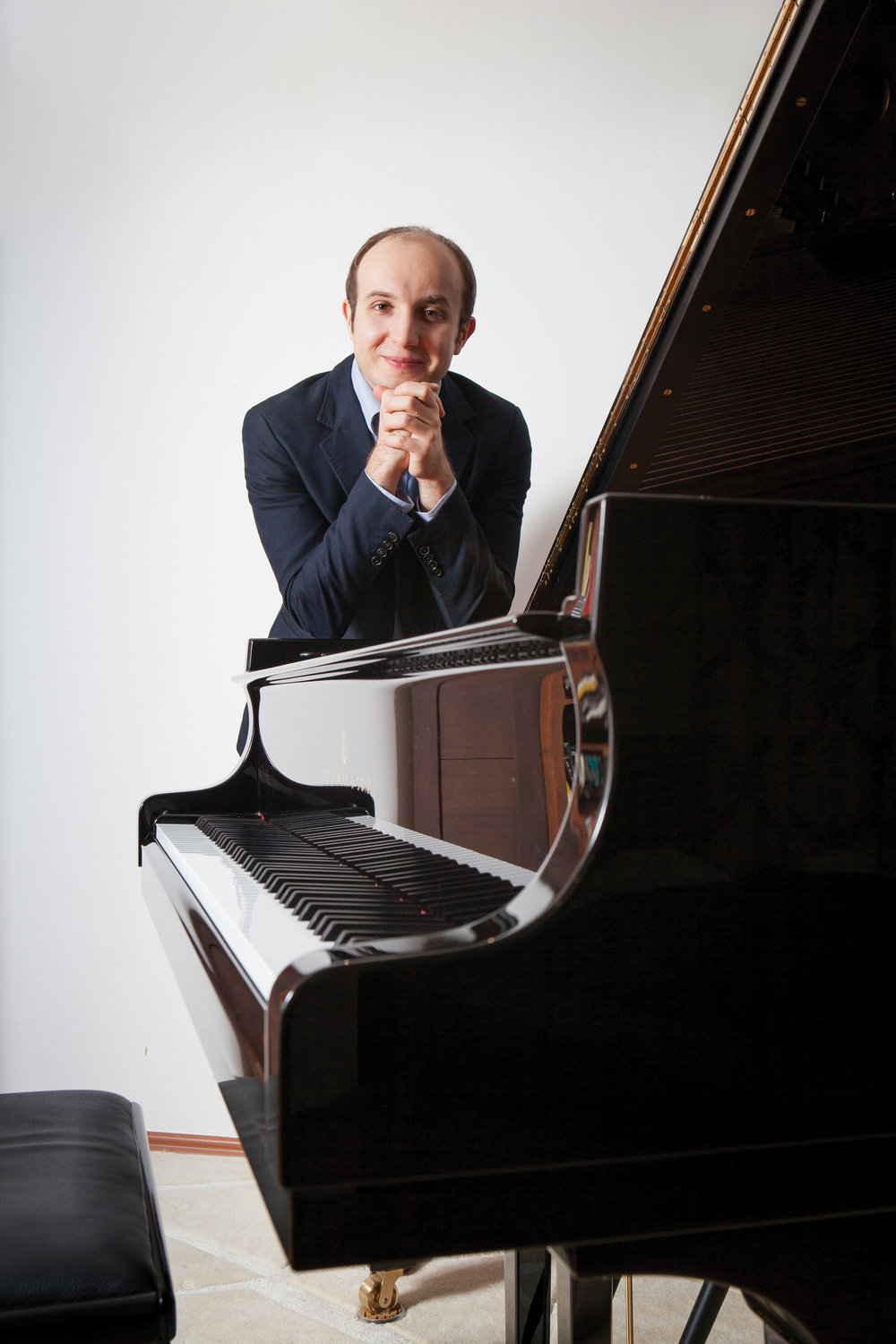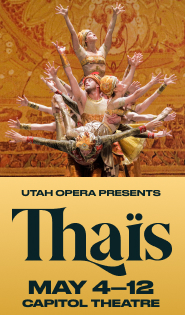Norman’s brilliant “Play” receives inspiring performance by Utah Symphony

Andrew Norman’s “Play” was performed by Thierry Fischer and the Utah Symphony Friday night.
Few young composers are as celebrated as Andrew Norman. The Los Angeles-based composer’s career has spanned a brief 17 years, but has only really begun to pick up steam during the last decade. Already, the 39-year-old’s music has been performed by many of the world’s great orchestras and has won a long list of prestigious awards.
Norman’s three-movement orchestral work Play, performed by the Utah Symphony Friday evening, demonstrated to the Abravanel Hall audience just how brilliant a talent is Norman, the orchestra’s composer-in-association. A heady mix of rigorous intellectual exploration and raw emotionality, Play is realized with a polished yet experimental approach that often relies on extended instrumental techniques to generate Norman’s imaginative sound-world.
Play’s movements, titled “Level 1-3,” are a direct reference to one of Norman’s major influences: video games. This is manifest in one of the work’s more intriguing compositional techniques. As in a video game. the percussionist’s instruments appear to control the actions of other orchestral musicians: they can be turned on and off, be made to play faster or slower, and go forward or backward, just as a gamer might control their on-screen avatar.
The first movement (Level 1) begins in frenzied and chaotic fashion, with short motifs that spread rapidly throughout the entire orchestra. Norman here makes effective use of a very wide range of dynamics.
In Level 2 there are stretches of whispering gestures that rely on extended instrumental techniques. In the third movement the chaos heard during the first began to dissipate in favor of a more unified orchestral sound. The orchestra began to introduce more tonal harmonies and longer sustained tones that accompany the established frenzied gestures. There is a grand fortissimo before the music gradually fades away into a quiet coda.
Under Fischer’s steady direction, the Utah Symphony delivered an inspiring performance of this technically demanding piece; the percussionists were kept especially busy throughout its 40-minute duration. The piece makes effective use of a wide range of dynamics, which proved devastatingly effective under Fischer’s leadership. When the orchestra was called upon to deliver more energy, they responded with real vigor.
Music director Fischer has been instrumental in bringing new orchestral music to Utah audiences. Before his tenure, performances of music composed during the last century were rare in Abravanel Hall. It’s been refreshing to see that newer music is now a steady and important part of the Utah Symphony’s repertoire.

Alexander Gavrylyuk
Rachmaninoff’s popular Piano Concerto No. 2 was heard after intermission, with Alexander Gavrylyuk as the soloist.
The pianist’s opening phrase began with a fine, delicate pianissimo and grew into a powerful momentum that set up the entry of the orchestra. During the poignant second movement, the pianist’s touch, timing and phrasing made for an exceptionally lyrical presentation. Here the interplay between the pianist and several of the orchestral soloists shone very brightly indeed.
During the energized third movement Gavrylyuk was able to fully display his impressive technique, and did so with incredible precision and musicality. The flurries of notes that closed the concerto were especially dramatic, and as soon as the final chords completed their resonance, the audience responded with much enthusiasm.
The orchestra, especially the string section, had a wonderful showing during the Rachmaninoff concerto as well as in the Russian composer’s Vocalise. The sound was lush and warm, well balanced and inviting, rendered with emotional sincerity by the performers.
The program will be repeated 7:30 p.m. Saturday in Abravanel Hall. utahsymphony.org; 801-355-2787.


Posted Mar 27, 2019 at 1:51 pm by marvin zimmer
I thought the modern piece play was just an experiment and wasn’t impressed by the cacophony of sounds and the lack of emotional warmth. Music should be both intellectual and emotional. Thank God for Rachmaninoff. The modern piece lacked coherence and melody, and I was sorely disappointed. My brain is still rattled from the noise.